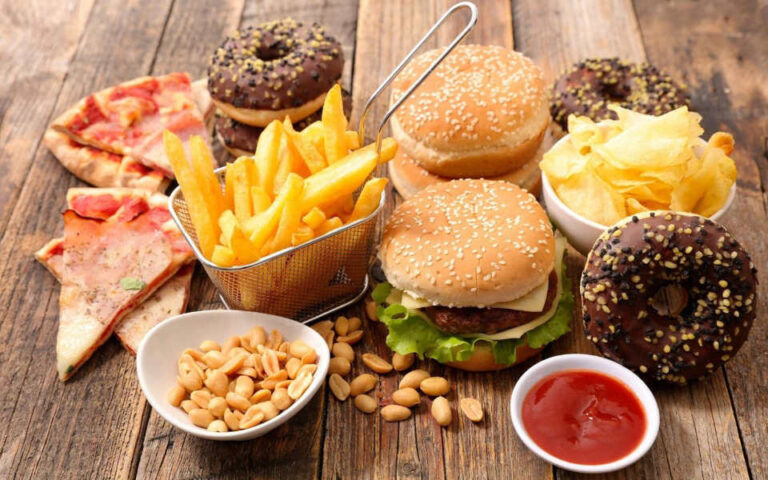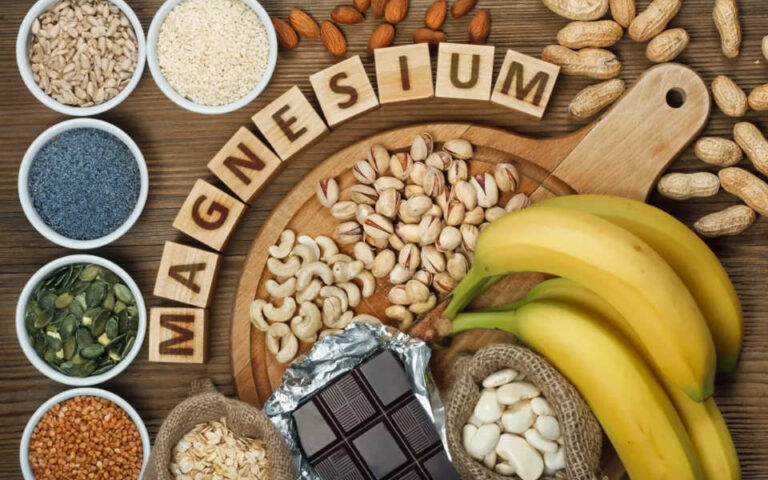There’s so much to unpack when sugar and artificial sweeteners are being talked about. Over the years, this sweet component has been a part of an unimaginable volume of food items, more than one could ever think of.
The terms sugar and artificial sweeteners have been re-modeled and revamped countless times to make them look and sound as natural as possible. Thinking about it, why does it have to be re-named if nothing is actually wrong with it? Clearly, most consumers are lured by their taste more than their effect on one’s health.
By now, it has become common knowledge that some, if not most of the ready-to-eat foods, pre-packed condiments, easy snack options are heavily processed, and ultimately, there’s a high probability that they are poured over with loads of artificial sweeteners.
What Is Refined Sugar?
Before you even explore the truth about artificial sweeteners, you first need to embrace and understand what refined sugar is. In a nutshell, the intention of refining the sugar from its raw form isn’t bad at all. At the beginning, sugar in its most basic form isn’t really bad. They are extracted from plant-based sources, primarily sugar cane.
The process of refinement is the method used to remove impurities, particularly the non-sugar materials that are combined during their extraction from their original form. Also, refining sugar makes it less prone to contamination, and spoilage during transport and distribution. This is a must given the world’s demand for sugar.
What Are Artificial Sweeteners?
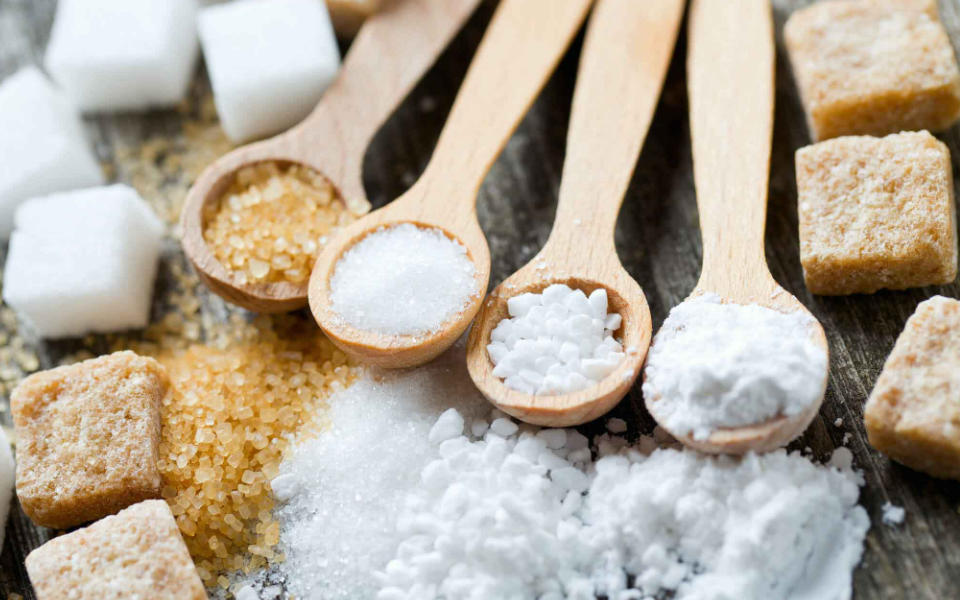
Because of the great demand for sugar in a vast spectrum of products around the food industry, the sugar that we know is then used for another purpose, and that is the artificial sweetener.
Now, this can hit you hard. How can something that’s marketed as delicious and mouth-watering have so many artificial sweeteners? And, what’s the very thing that makes it harmful to one’s health?
Artificial sweeteners are synthetic sugar substitute that has a straightforward purpose, and that is to bring a unique taste which makes the food better tasting. Because of its chemical structure, it’s purposely manufactured to withstand several months in your go-to supermarket shelves. In most commodities, it can even extend its shelf life up to a number of years!
The fundamental form of artificial sweetener is actually the sugar that we know of. They are derived from their natural sources which vary from sugar cane, or a plant. From this, they are combined with synthetic substances that create a low-calorie or in most cases zero-calorie sweetener that is added to pantry staples, beverages, snacks, and a whole lot more.
Let’s cut the chase here. The real question is:
Are Artificial Sweeteners Bad For You?
As you reach this part, right off the bat you would see the end of the tunnel. Yes, artificial sweeteners are not healthy. But, here’s the other side of the coin, why are we so invested in products that contain massive amounts of artificial sweeteners?
With the wide range of food items, including pantry staples that can potentially contain artificial sweeteners, there hasn’t been any gold standard on how much is too much intake of artificial sweeteners.
Because of this reality, it’s safe to say that yes, artificial sweeteners are bad for you. Primarily because it’s almost definitive that the amount of artificial sweeteners may be too much, since it’s existing in almost heavily processed food items.
Here are some of the reasons why artificial sweeteners are bad for your health (especially when you’re exposed to massive amounts):
1. Artificial sweeteners can make you overeat
Think of it this way, artificial sweeteners open the gates of the brain to openly use sugar. It eventually activates the brain’s neurotransmitters responsible for reward and satisfaction. But, here’s the downside, it doesn’t have the capacity to finish the job and have the gates closed after.
Next thing you know, because it doesn’t have a dense amount of calories, enough to serve as food for the brain, your body tells you to eat more sugar. This is the exact moment you feel the need to crave food.
That is precisely how artificial sweeteners trick the brain. It creates a chaotic phenomenon wherein sugar is present in the body, but because it lacks the amount of calories that the brain really needs, it gets worse by having to crave for more sugar to reach satiety and satisfaction later on.
Here is where you happen to overeat! In reality, your body tells you to eat real sugar coming from dense sources like whole grains, rice, pasta, and the like. Before you know it, you have consumed an immeasurable amount of sugar both from artificial sweeteners and the ones from real sugar. This hits a spot where unintentional weight gain can begin if this keeps on happening over the course of months, and for most people, even years. Also, this is where you choose your calories carefully, so you have enough space to put your carbohydrates in general.
2. Artificial sweeteners can cause issues with hormones
Heavy consumption of artificial sweeteners, in whatever form there is, can create a much different reaction to the body’s insulin. The pancreas, the organ which secretes the hormone insulin responds differently when the food you eat is high in artificial sweeteners. Unlike a calorically dense variety of sugar or forms of carbohydrates where insulin is used systematically, artificial sweeteners appear in the bloodstream in an unrecognisable form, which disrupts the body’s way of digesting sugar. This creates an abnormal pathway of how insulin works in the body, which can definitely develop into more serious issues like Diabetes Mellitus.
3. Artificial sweeteners can have an effect on your gut health
Another perspective on the effect of artificial sweeteners on the body’s hormone regulation is involving the body’s gut microbiota. Over the years, more and more studies have been revealing that artificial sweeteners are unknown to the human gut. Essentially, the gut can barely recognise what artificial sweeteners are, the gastrointestinal tract thinks of them as foreign, with no idea how to even digest, and process them as it enters the gut. With this uncomfortable situation, artificial sweeteners remain intact in the gut, which disrupts its environment. This can eventually lead to developing pathogens, which can cause glucose intolerance over a period of time. Some studies have linked this instance to be the culprit of a much more serious gut issue like Crohn’s Disease and other autoimmune conditions.
By now, it has been established that artificial sweeteners can figuratively leave a bad taste in your mouth. It’s already certain that the effects of prolonged intake of stuff with artificial sweeteners can put your health in a bad disposition.
What Are The Most Common Artificial Sweeteners?
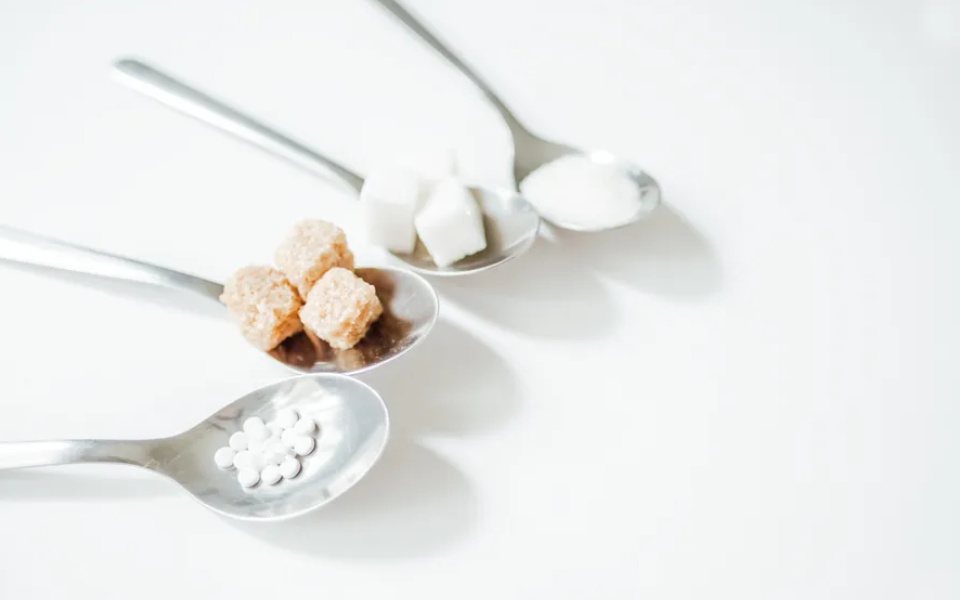
Of course, the next thing that comes to mind is how to outsmart these food items by ditching them and actually figuring a way to determine that indeed, the artificial sweetener has been used?
And here it goes, what are the most common artificial sweeteners according to the Food and Drug Association (FDA) in the United States:
- Saccharin
- Aspartame
- Acesulfame potassium (Ace-K)
- Sucralose
- Neotame
- Advantame
- Steviol glycosides
- Luo Han Guo fruit extracts
This list is not, in any way deliberately the exact and only terminologies that might be used to label or name artificial sweeteners. However, when we speak of commonality and familiarity, these are the most common forms of artificial sweeteners that you will most likely find across the globe.
How Do You Know You’re Getting So Much Artificial Sweeteners?
Discomforts may seem unnoticeable especially if a person has grown to live with food items with artificial sweeteners. In a nutshell, there are distinct health issues that might be slowly developing over a long period of time. Here are the most common ones:
- Unintentional weight gain
- Glucose intolerance
- Sugar craving
An important factor that creates a huge impact on overall health is moderation. Regulated intake of artificial sweeteners in whatever form there may be, can seriously make or break a person’s health status long term. More than magnifying the manifestations in identifying if a person has been taking in so many artificial sweeteners, nothing beats discipline and mindfulness when it comes to food intake as a whole.
Another way of intentionally observing if intake of artificial sweeteners is something you may need to re-visit is when you develop some level of intolerance to it. Intolerance to artificial sweeteners gradually build-up over time if the body’s getting way too much, more than what it can actually metabolise.
To a certain extent, symptoms of artificial sweetener intolerance may seem to overlap with other pre-existing health conditions that an individual already has. Nonetheless, here are some of the most common symptoms to observe if a person seems to be developing intolerance to artificial sweeteners:
- Headaches
- Stomach aches
- Nausea
- Mouth ulcers
What Are The Safe Sugar Substitutes?
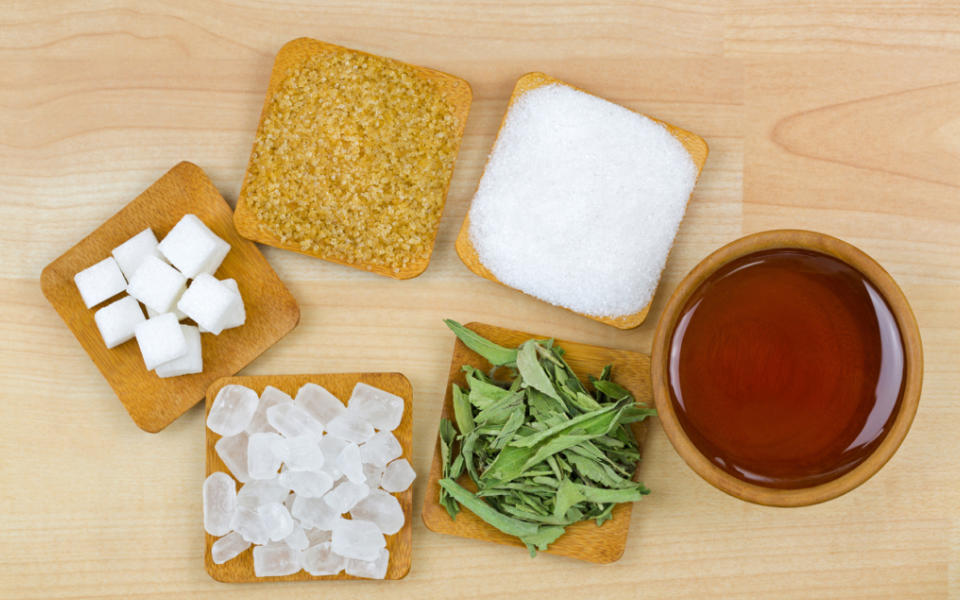
On the other hand, it’s also worth mentioning that not all sugar is created equal. With this being said, there are forms of sugar and natural sweeteners that the body can safely ingest and process.
You might be wondering, why are they considered safe? Well, for one, they are most likely NOT heavily processed. They are taken in or most likely ready for consumption once extracted from their source. Moreover, they are deliberately healthy for the gut since minimal to zero chemicals were infused into these natural sweeteners
Here are some:
1. Raw Honey
Raw honey is well known to be a natural form of sugar. It’s undoubtedly natural and less likely to have undergone any processing since it’s naturally produced by honeybees. Since this type of sweetener is one of the most unadulterated, its antioxidant properties which are known to significantly lower causes of inflammation inside the body are very much intact and highly potent.
Honey is now widely accepted and used in various forms like beverages, cakes, pastries, and even household recipes that would require sweeteners but in a much healthier alternative. Unlike artificial sweeteners, honey is a naturally occurring sugar. Because of its natural chemical structure, the gut or the digestive tract can easily process and eventually digest honey following the right pathway on how sugar should be processed in the body ideally. Hence, it doesn’t bring a threat to the body’s overall functionality, making it totally safe and an ideal sweetener.
2. Coconut sugar
Coconut sugar came into the world of sweeteners quite recently. In most countries in Asia, coconut sugar has been a household name in almost everything that needs or requires a sweetener. Because of its distinct characteristic that’s unrefined and preserved in its purest form, coconut sugar is easily becoming a staple in some parts of the world.
From the word itself, coconut sugar is naturally extracted from coconut sap, which then maintains its natural sweetness without being heavily processed. Also, coconut sugar is completely plant-based, making it more favourable to individuals who lean towards a plant-based lifestyle.
3. Agave nectar
Agave nectar is somewhat associated with honey to a certain extent because of its resemblance in color and consistency. Originally, agave nectar is extracted from the agave plant, which may be unknown to some parts of the world since the agave plant is most abundant in Mexico.
Nonetheless, agave nectar is a great natural sweetener alternative that can be used widely as much as honey. Also, most agave nectars are planted, harvested and even stored in an organic farm or facility. This makes the agave nectar even safer as a healthier sweetener alternative.
4. Stevia
Stevia has an equal share of negative and positive reviews with countless articles you can find online. When you try to step back and check its origin, stevia started as a plant. So naturally, it’s actually an acceptable sweetener. However, there are forms of stevia available across the board that might be containing unnecessary ingredients, or what we call artificial sweeteners. Well, for one, the combination of stevia plant with other artificial sweeteners is now available, most likely to allow stevia to have a longer shelf life and also for it to be more affordable to the general public.
Whatever the cause may be, remember to not be lured by cost and labels. Build the habit of checking and being vigilant in reading the ingredients list.
Another sensible benefit of these natural sweeteners is that they are meant to have antioxidant properties. Since they are exposed to minimal processing, they are intact in terms of natural components that help the body to increase its exposure to antioxidants that are known to increase the body’s processes to be more efficient and disease-free!
Of course, like any other healthy substitutes, it’s always best to use everything in moderation or as needed. For some, they lean towards the use of these natural sugar substitutes if the recipe calls for it.
How Do You Know If Your Sugar Substitute Is Safe?
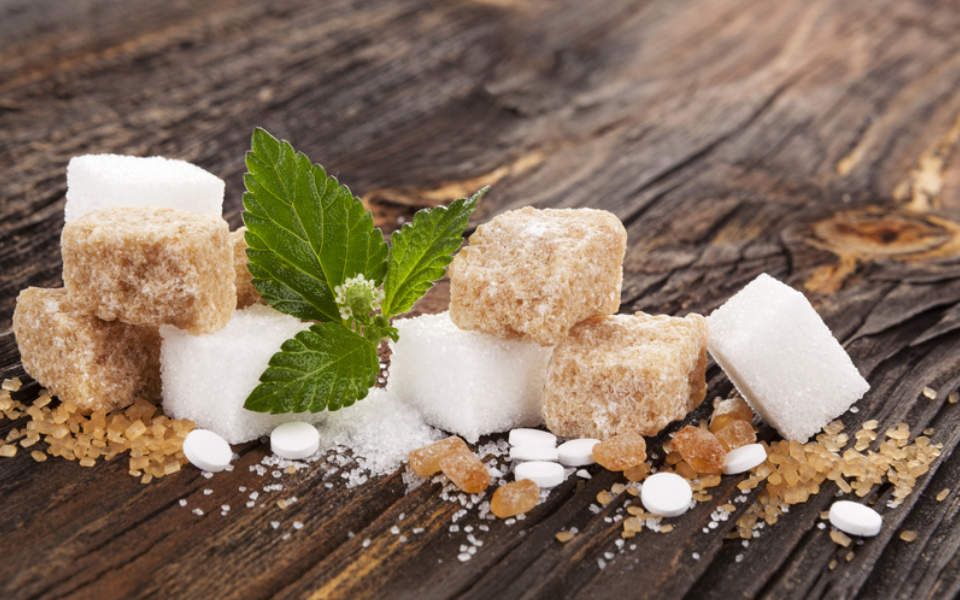
For quite a while, this has been hard to endure, knowing how to step away from old unhealthy choices, and what to replace them with. But, over the past years, it has become a norm to develop realistic ways and means to stay alert and keen in knowing which food items are really free from artificial sweeteners, or at the very least, have the most negligible amount.
Realistically, developing new habits may need practice and some getting used to. Rest assured, it’s definitely worth it! Here are some of the things you might want to consider when checking if an item is loaded with artificial sweeteners:
1. Read the ingredients list
This is the most common scenario that should come to mind if you want to begin sifting through the food products that might contain artificial sweeteners. It has been revealed that artificial sweeteners may come in several forms, terminologies, and are even marketed as safe, then the habit of reading the ingredients list will definitely be an absolute eye-opener for you.
First order of business is this. It’s important to understand that the first item listed in the food ingredients list is the most used ingredient. Therefore, if a product is lashed with so many artificial sweeteners, you will definitely see it in the ingredients list. This is the most crucial part when you want to cut your artificial sweetener in general. Most people forget that ingredients list exist and it is almost our second nature to just mind the brand name without looking at the exact components of what we eat or what we put in our food.
For some, products with an ingredients list that may contain a small amount or traces of artificial sweeteners may be good enough to be consumed since it has negligible content overall. But, here’s the bitter truth, it can accumulate inside the body over time. So, the long-term detrimental effects may be delayed or even appear as mild or aren’t bothersome. At the end of the day, it pays off if you know better sooner than later.
2. Be mindful of your consumption
This is where it gets interesting. The fact that artificial sweeteners are most common in anything that’s convenient to consume, total elimination of such can trigger the impression that it is completely impossible to live without them.
In most cases, prolonged intake of stuff with these artificial sweeteners has proven to alter or modify a person’s palate. Normally, they started patronising products like these at a very young age. It isn’t surprising anymore to see young adults or even older adults who would willingly avoid foods with naturally occurring sugar like fruits, honey, and naturally sweetened beverages. This has become their second nature because artificial sweeteners have completely shifted their neurotransmitters, particularly the ones found in the tongue, to find comfort and satisfaction in addressing their sweet cravings with nothing but those that are loaded with artificial sweeteners.
This mind-blowing shift in the palate doesn’t happen overnight. Just like the other parts of the body, the sense of taste can function optimally with a consistent build-up of healthy eating habits, which includes the total elimination of products with artificial sweeteners.
If you’re on the spectrum where you’re only starting to cut sources of artificial sweeteners, then reading the food label is always a good idea!
3. Ask the experts
Seeking professional help from dietitians, physicians or anyone who’s knowledgeable about food and your relationship with food is never a bad thought. For one, it gives you a better picture of what to expect physiologically once you have started making better decisions about what you will put in your mouth.
At this era, the conflicting views online on the effects of artificial sweeteners can either hold you back and continue to be dependent on convenient foods or, flip your eating habits soonest and develop better eating habits. Whichever path you would want to end up, seeking advice from a healthcare professional can give you evidence-based, concrete facts that would make the journey worthwhile.
Also, it gives your small steps further a sense of purpose, a deeper meaning that your body deserves nothing but only the ones that are recognisable, nothing that’s foreign and ambiguous, digestion-wise. These health experts can navigate methods or even concepts.
4. Find a community
Surprisingly, this isn’t hard to find. There are bountiful groups and like-minded individuals who actively promote the mindful shift in making better decisions over food, which includes staying away from artificial sweeteners. This aspect is actually more than what you have asked for. Most communities linked to healthy eating can provide way too much information, way beyond the knowledge you need with regards to the total omission of artificial sweeteners alone.
It’s becoming more and more inclusive, realistic, and even accessible since these targeted communities or groups have developed sensible ways and means to come up with great alternatives that wouldn’t change the zone, especially for people with a sweet tooth. There’s a very long list of recipes, organic counterparts, and easy-to-make substitutes for your comfort food which happen to be loaded with artificial sweeteners. Looking at the bigger spectrum, there are a lot of possibilities once you start looking for healthier alternatives!
What Happens If You Quit Artificial Sweeteners?
Your body will be delighted once you start eliminating artificial sweeteners as soon as possible. This is a no-brainer. But first, you should establish within yourself and to your environment as well that avoiding sources of artificial sweeteners is far from sweet.
Like any other bad habits that you intend to break, it demands attention to detail. If it requires revamping your most-used pantry staple which may have the most negligible amount of artificial sweetener, but it’s definitely the most used, then, it’s about time to head on and consider replacing them first.
Well, re-grouping your resources is only the tip of the iceberg towards the complete withdrawal of artificial sweeteners. On the other hand, it makes a lot of sense to keep moving forward once you see the full benefits of having zero artificial sweeteners in your daily routine. Here are some:
- Weight loss
- Less or no sweet craving
- Less cranky or moody
- For women, regulated menstrual cycle
Again, not all bodies are wired the same way upon removing artificial sweeteners. Some might experience little to no improvements at all, though some might drastically feel better once the changes have begun. At the end of the day, it’s important that you observe and closely monitor the changes in your body through the process for you to understand your body better.
Conclusion
With all the facts laid down to establish what is the real picture behind artificial sweeteners, one thing is certain. We cannot deny the power of mindset. Like any type of vices, the commitment to explore, and experience new taste wherein artificial sweeteners are far out, is undeniably challenging for most people. Why? Primarily because over the years, we were built to be fully dependent on something that’s easy and convenient. We have completely detached ourselves, including our palate from stuff that’s natural and wholesome.
However, this isn’t enough to stay complacent and laid back with our very own food choices. These disparities that we now know of the ingredients list are very vital moving forward. This can become a pewful weapon in equipping your own household in creating a chain of decision-making with regard to food. Sounds ground breaking, right?
Nonetheless, an unhealthy food habit or more specifically dependency on foods that are heavy on artificial sweeteners is only the tip of the iceberg. This is actually a developing blue print on how your actual health status should actually look after one or more decades. When you think about it, the food that we eat is more than meets the eye. One way or another, there has to be a turning point where we should all be wary of what goes into the food that we eat.
